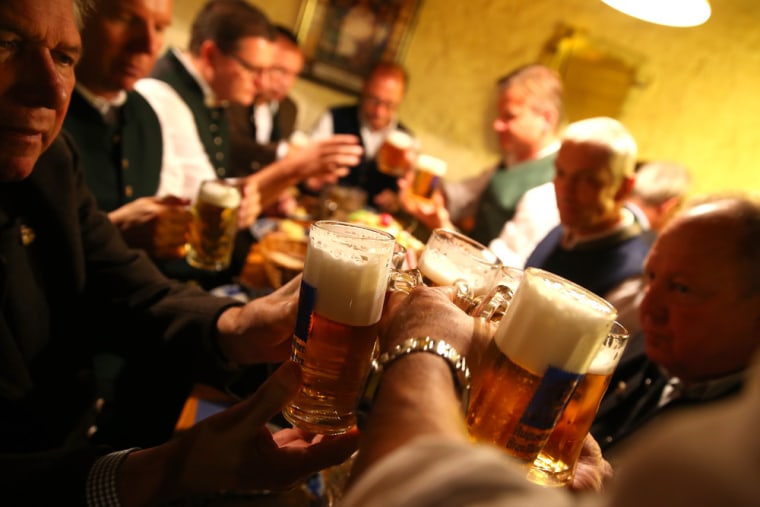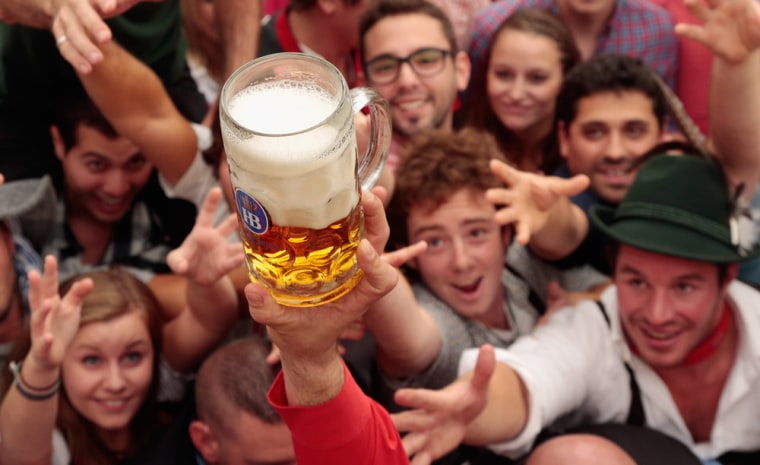
MAINZ, Germany -- Germany's brewers are pushing to have their amber treasure to be protected by the same UN agency that has safeguarded the Great Wall of China, the Grand Canyon and Egypt's pyramids.
"Thanks to our beer purity law, Germany has an unchallenged reputation as a beer nation," said Hans-Georg Eils, the president of the German Brewers Association.
The organization has applied for the country's beer purity law to be included on UNESCO's "intangible cultural heritage" list -- which recognizes practices which require "urgent measures to keep them alive." UNESCO is also responsible for designating World Heritage sites, a list of more than 900 landmarks seen having "outstanding universal value."

The strict beer purity regulation rules -- known as the Reinheitsgebot -- allow only four ingredients to be used in the brewing process: water, malt, hops, and yeast. The rules were drafted by Bavarian dukes about 500 years ago and beer has been a serious business for Germans ever since.
The country boasts more than 1,300 breweries, more than 40 types of beer and about 5,000 brands. The latest statistics suggest the average German consumes more than 27 gallons of beer each year.
"The popularity of German beer in great parts from the brewing tradition," said Marc-Oliver Huhnholz, a spokesman for the German Brewers Association. "From just four ingredients, we can make so many different tasting brews, that is really a special craftsmanship."
Germany's beer purity law has been adopted in neighboring Austria and Switzerland and is also adhered to elsewhere, such as the former colony of Namibia in southern Africa.
Christian Mueller, brewmaster for Namibia's Windhoek Lager, said the regulations played a major part in his company's success.
"We put the German word 'Reinheitsgebot' on every bottle and even though most people around here cannot pronounce the word, everybody knows what it means," he said. "People here also just call it 'pure beer'."
Mueller says the purity law gives beers a distinctive taste and he believes that obtaining UNESCO status would give the tradition a "good boost."
UNESCO's intangible cultural heritage list aims to maintain "cultural diversity in the face of growing globalization."
The agency defines intangible cultural heritage as "traditions or living expressions inherited from our ancestors and passed on to our descendants, such as oral traditions, performing arts, social practices, rituals, festive events, knowledge and practices concerning nature and the universe or the knowledge and skills to produce traditional crafts."
The German Brewers Association expects a UNESCO decision by the end of 2015.
